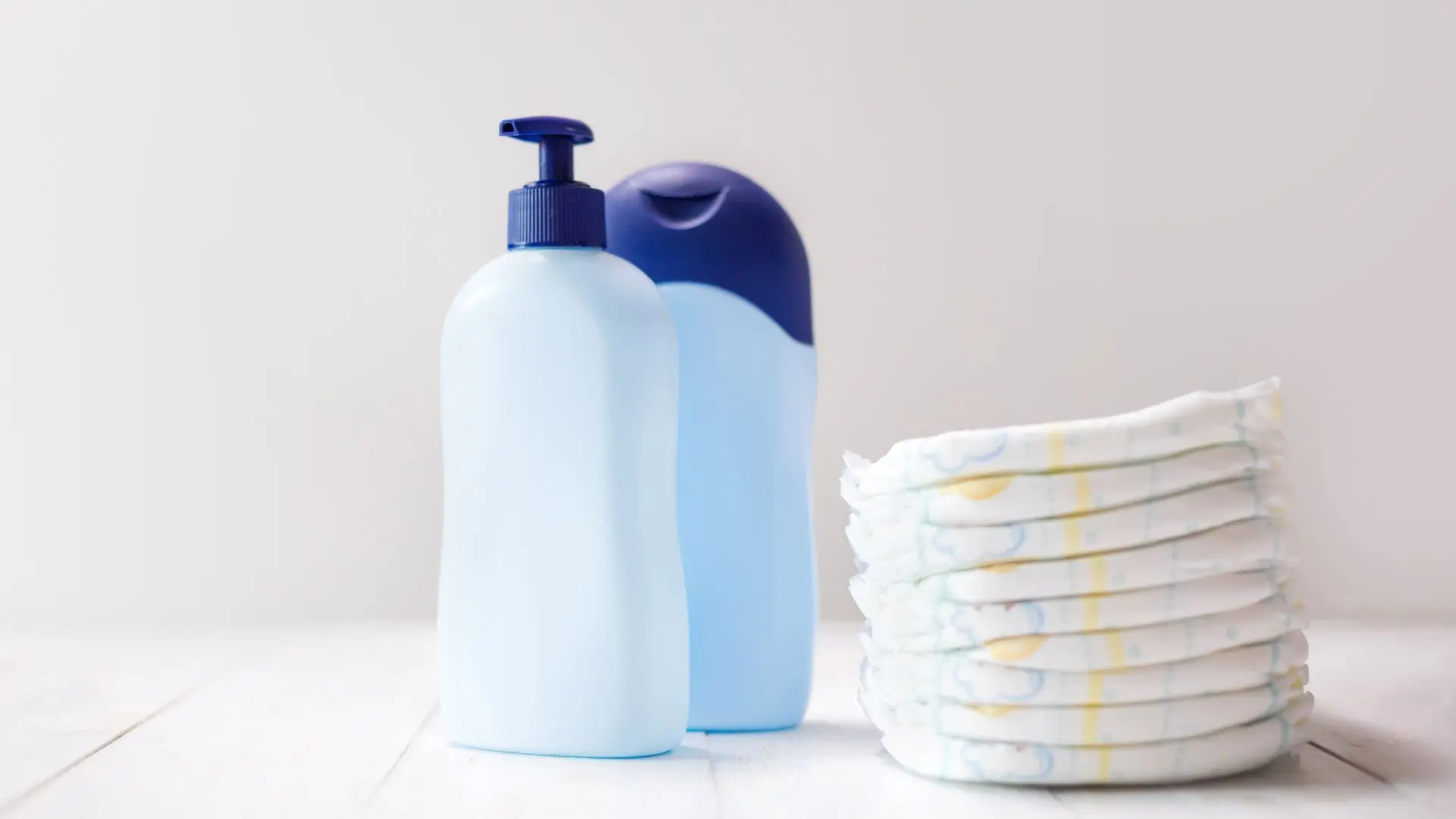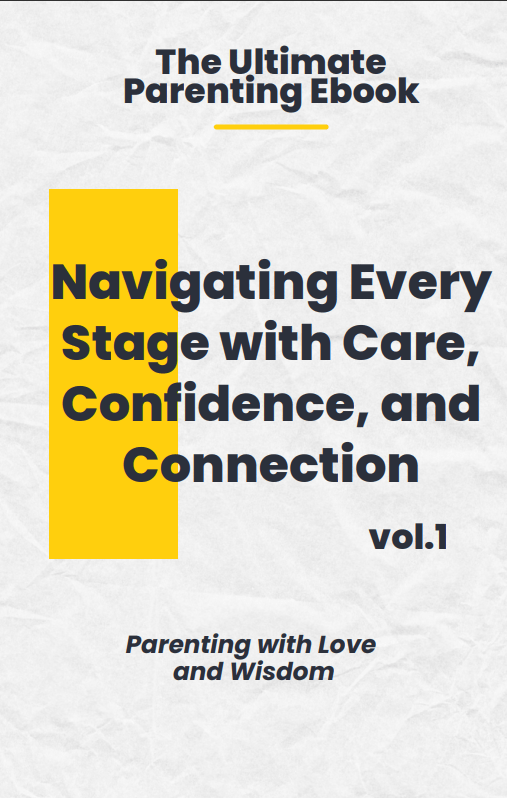Discover essential First-Time Mom Tips covering every concern from feeding to babyproofing. Boost your confidence and thrive in your motherhood journey.

Being a first-time mom is an incredible journey filled with moments of joy, love, and sometimes, a bit of confusion. As you navigate this new chapter, you’ll likely find yourself seeking advice and support from various sources. This comprehensive guide offers first-time mom tips to help you feel more confident and informed as you care for your little one.
we’ll explore some essential tips for first-time moms, covering everything from feeding and sleep schedules to health and developmental milestones.
In This Blog
ToggleFirst-time Mom tips #1: Feeding your baby
If you’re breastfeeding but considering supplementing with formula, it’s essential to understand how to do this effectively. Many new moms choose to supplement due to low milk supply or personal preference.

How to Supplement with Formula When You Are Breastfeeding
Combining breastfeeding with formula feeding can provide flexibility and ensure your baby gets enough nutrition. To start, introduce formula gradually, perhaps with one feeding session per day. This helps your baby get used to the new flavor and consistency. Be sure to consult your pediatrician before altering your baby’s diet.
Preparing, Storing, and Using Formula
Proper preparation and storage of formula is vital for your baby’s health. Carefully follow to the directions provided on the formula packaging. Use boiled, cooled water for mixing. Always discard any leftover formula after a feeding session to prevent bacterial growth.
How Much Formula Does a Baby and Newborn Need?
The amount of formula a baby needs varies by age and weight. Newborns typically consume about 2-3 ounces per feeding every 3-4 hours. As your baby grows, their consumption will rise. By six months, they may need 6-8 ounces per feeding. Keep an eye on your baby’s hunger cues and consult your pediatrician if you have concerns.
First-time Mom Tips #2: Breastfeeding Challenges
Breastfeeding can be a rewarding experience, but it also comes with challenges.

Coping with Cracked, Bleeding, Scabbed Nipples While Breastfeeding
Sore nipples are common, especially in the early days. To soothe and heal cracked or bleeding nipples, use lanolin-based creams or coconut oil. Ensure your baby is latching correctly, as a poor latch can exacerbate nipple pain. If the problem persists, seek help from a lactation consultant.
What to Do if Your Baby Only Nurses on One Side
It’s not uncommon for babies to favor one breast. To encourage nursing on both sides, try different nursing positions, or start each feeding on the less preferred side. If your baby continues to refuse one side, it could indicate an underlying issue, so consulting a lactation expert might be beneficial.
First-time Mom Tips #3: Love and Emotional Development
Building a strong emotional bond with your baby is crucial for their development.

Your Child’s Love Language: 7 Signs They Love You
Understanding your baby’s love language can help strengthen your bond. Look for signs such as eye contact, smiling, cooing, and physical closeness. These gestures show that your baby feels secure and loved. Responding to their cues with affection and attention will foster a deep emotional connection.
First-time Mom Tips #4: Crying and Soothing Techniques
Babies communicate through crying, and it can sometimes be challenging to interpret their needs.

What to Do When Your Baby Cries for No Reason
It’s heart-wrenching when your baby cries inconsolably. Often, they might be overstimulated, tired, or simply seeking comfort. Try swaddling, rocking, or a gentle massage to soothe them. White noise or soft music can also create a calming environment.
Why Babies Cry and How to Soothe Them
Babies cry for various reasons, including hunger, discomfort, or the need for a diaper change. Paying attention to their different cries can help you respond appropriately. Holding your baby close, speaking softly, and maintaining a calm demeanor can work wonders in soothing them.
Gripe Water: Does It Work?
Gripe water is a popular remedy for colic and digestive discomfort in babies. While some parents swear by its effectiveness, it’s essential to choose a brand without alcohol or sugar. Always check with your pediatrician before introducing any new product to your baby.
First-time Mom Tips #5: Sleep Patterns and Challenges
Establishing a sleep routine is vital for both you and your baby.

Sample Baby Schedule for 5-6 Months Old
Creating a consistent schedule helps regulate your baby’s sleep patterns. A typical day might include three naps, regular feeding times, and a bedtime routine. For instance, you could start the day at 7 AM, followed by naps at 9 AM, 1 PM, and 4 PM, with bedtime around 7 PM.
Baby Nap and Nap Schedules
Nap schedules vary by age. Newborns nap frequently, while older babies might have longer, more predictable naps. Aim for a quiet, dark environment to promote restful sleep. Consistency is key, so try to stick to a routine that aligns with your baby’s natural rhythms.
Why Does My Baby Sweat So Much While Sleeping?
Sweating during sleep is common in babies due to their developing temperature regulation systems. Ensure your baby sleeps in a comfortable, well-ventilated room. Dress them in light, breathable clothing, and avoid overheating with excessive blankets or clothing layers.
Sleep Regression in Babies
Sleep regression is a temporary phase where your baby might wake up more frequently. It often coincides with developmental milestones. Maintain your sleep routine and offer extra comfort as needed. Remember, this phase will pass, and your baby’s sleep patterns will improve over time.
First-time Mom Tips #6: Baby’s Physical Development
Every baby develops at their own pace, but certain milestones are generally expected.

When Do Babies Start Crawling?
Babies typically start crawling between 6-10 months. Encourage this development by providing ample tummy time and a safe, spacious area for exploration. Crawling strengthens muscles and coordination, preparing your baby for future physical activities.
When Do Babies Start Walking?
Walking usually occurs between 9-15 months. Support your baby by offering sturdy furniture to hold onto and guiding them with your hands. Celebrate each step, no matter how wobbly, to build their confidence and enthusiasm.
First-time Mom Tips #7: Health and Hygiene
Keeping your baby healthy and clean is a top priority.

Baby Poop: Everything Parents Need to Know
Baby poop varies widely in color and consistency, depending on their diet. Breastfed babies often have yellow, seedy stools, while formula-fed babies might have firmer, brown stools. Frequent, watery stools could indicate diarrhea, while hard, dry stools might suggest constipation. If you’re concerned about your baby’s bowel movements, consult your pediatrician.
Why Babies Spit Up
Spitting up is normal in infants due to their immature digestive systems. To reduce spit-up, feed your baby in an upright position and burp them frequently. Avoid overfeeding and keep them upright for 20-30 minutes after feeding.
Formula Allergy in Babies
Some babies may develop allergies to formula, showing symptoms like rash, vomiting, or diarrhea. If you think your baby might have an allergy, seek advice from your pediatrician.
They may recommend switching to a hypoallergenic or soy-based formula.
First-time Mom Tips #8: Bathing and Hygiene
Giving your baby a bath can be a wonderful way to bond.

When Can My Baby Go in the Shower?
Babies can start showering once they can sit up unassisted, usually around 6 months. Ensure the water temperature is comfortable and use a gentle, tear-free shampoo and body wash. Constantly watch over your baby to avoid any accidents.
How to Bathe a Newborn
Newborns only need a bath 2-3 times a week. Use a soft cloth and lukewarm water to clean their face, hands, and diaper area daily. For a full bath, fill a baby tub with a few inches of water and support your baby’s head and neck with one hand while washing with the other. Make sure the room is warm and dry your baby thoroughly afterward.
First-time Mom Tips #9: Nutrition and Feeding
Your baby’s nutritional requirements will change as they grow.

How Much Should My Baby Eat?
Determining how much your baby should eat can be a bit of a guessing game. At six months, start with a tablespoon or two of pureed food once a day, gradually increasing the amount as your baby shows interest and tolerance. By 12 months, your baby might be eating three small meals a day along with their regular breast milk or formula.
Baby Food Recipes for 6-12 Months Old
Introducing solids is an exciting milestone. Start with single-ingredient purees like sweet potatoes, carrots, or apples. As your baby gets used to new textures, you can introduce combinations like apple and pear puree or avocado and banana mash. Remember to introduce one new food at a time to monitor for any allergic reactions.
First-time Mom Tips #10: Maternal Health and Postpartum Care
Caring for yourself is equally important as looking after your baby.

C-section recovery, Timeline, and Aftercare
Recovery from a C-section takes time. In the first few weeks, rest as much as possible and avoid heavy lifting. Keep the incision clean and dry, and follow your doctor’s instructions regarding pain management and activity levels. Gradually, you’ll regain your strength and mobility.
Is It Normal to Lose Interest in Sex After Having a Baby?
Lack of interest in sex postpartum is common due to hormonal changes, fatigue, and the demands of caring for a newborn. Communicate openly with your partner about your feelings. Give yourself time to heal and adjust, and seek support if needed.
Warning Signs of Postpartum Depression
Postpartum depression affects many new mothers. Symptoms include persistent sadness, anxiety, and difficulty bonding with your baby. If you experience these feelings, reach out to a healthcare provider. Early intervention and support are crucial for recovery.
How to Cope with Postpartum Fatigue
Fatigue is a given with a new baby. Prioritize rest whenever possible. Nap when your baby naps and accept help from friends and family. Maintaining a balanced diet and proper hydration can help increase your energy levels. Don’t forget, it’s important to take care of yourself too.
Conclusion
Navigating the first year of your baby’s life is an incredible journey filled with joy, challenges, and countless learning experiences. These first-time mom tips are designed to guide you through the essential aspects of feeding, understanding your baby’s needs, sleep patterns, physical development, health, hygiene, and your own postpartum care.
Remember, every baby is unique, and it’s perfectly okay to seek advice and adjust as you go along. Embrace this beautiful journey with confidence and love, knowing that you’re doing an amazing job.
We hope you found these first-time mom tips helpful and reassuring. If you have any questions or personal experiences to share, please leave a comment below.
Your insights could be invaluable to other new moms navigating the same journey. Don’t forget to subscribe to our blog for more tips and support on your parenting adventure!
You may also be interested in : 20 Wellness Tips for a Sick Mom Taking Care of a Newborn




